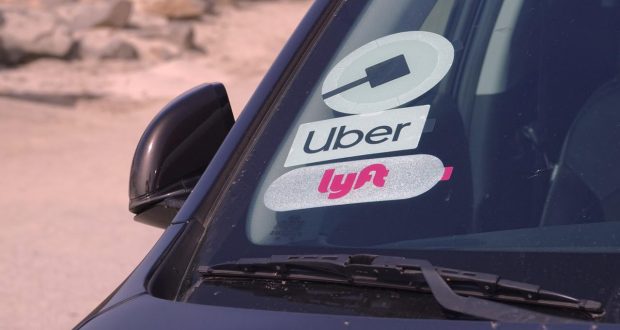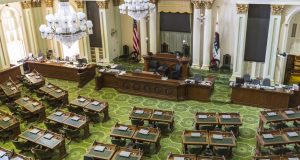By Bo Tefu, Lila Brown and Antonio Ray Harvey | California Black Media
California State Supreme Court Justices last week heard oral arguments from attorneys representing both sides in a lawsuit questioning the constitutionality of Proposition 22.
Prop 22 is the controversial gig worker law that voters approved in a 2022 ballot measure that reversed AB 5, a law that went into effect in 2020 that mandated tech companies to reclassify independent contractors as full-time W-2 employees.
During the court hearing, advocates questioned whether the initiative conflicts with the Legislatures’ constitutional power to implement a complete worker’s compensation system for gig workers. Currently, Prop 22 states that independent contractors for gig companies are ineligible for workers’ compensation.
Digital tech companies, including Uber, Lyft, and DoorDash supported Prop 22.
John Logan, a professor of labor and employment at San Francisco State University, said the state supreme court ruling will have national significance.
“Everyone is watching what the California Supreme Court will decide and whether or not these companies have a right to classify their workers as independent contractors,” Logan said.
Tech companies Uber, Lyft, and DoorDash spent $200 million backing the initiative and helped reclassify 1.4 million drivers as contractors rather than employees.
California labor groups argue that Prop 22 is unconstitutional and goes against state law since the legislature codified workers’ compensation in 1911. The state’s largest labor union, the Service Employees International Union (SEIU) argued against Prop 22 alongside four drivers affected by the lawsuit.
However, gig companies Uber and Lyft threatened to leave the cities and states that classify drivers as employees following their large investment in the initiative.
During the hearing, company representatives from Uber said that removing the law would be, “devastating for thousands of drivers and couriers who turn to Uber for flexible work.”
“Millions of Californians would see major service reductions and cost increases,” Uber representatives said.
Following the arguments, the court justices have 90 days to deliberate, take a preliminary vote, and then issue a final ruling on the lawsuit.
 Westside Story Newspaper – Online The News of The Empire – Sharing the Quest for Excellence
Westside Story Newspaper – Online The News of The Empire – Sharing the Quest for Excellence





